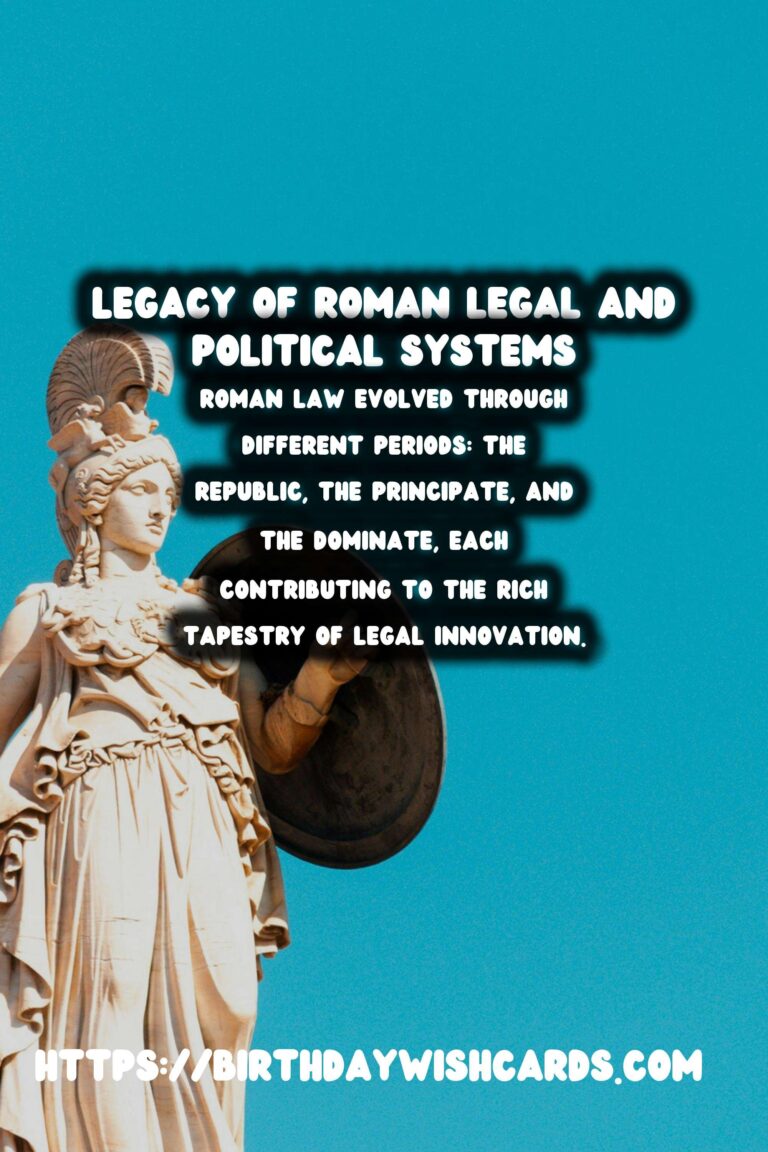
Ancient Rome is renowned for its monumental achievements that have profoundly influenced the world. Its legal and political systems, in particular, are regarded as foundational structures that have left an indelible mark on modern societies. In this article, we delve into the intricacies of these systems, exploring their origins, evolution, and enduring legacy.
The Roman Legal System
One of the most significant contributions of Ancient Rome is its legal system, which laid the groundwork for various legal principles still in use today. Roman law was a complex and sophisticated body of rules that governed every aspect of life in Rome and its territories.
The earliest codification of Roman law was the Twelve Tables, established around 450 BCE. This set of laws was crucial in providing a written record of legal rules, accessible to all citizens, ensuring transparency and fairness.
Roman law evolved through different periods: the Republic, the Principate, and the Dominate, each contributing to the rich tapestry of legal innovation. The concept of ‘civil law’ or ‘ius civile’ formed the core of Roman legal tradition. It was applicable to Roman citizens and served as a model for modern civil law systems.
Twelve Tables to Justinian Code
The Twelve Tables were just the beginning. Over time, the Roman legal framework expanded to include laws enacted by assemblies, edicts by magistrates, and later, decrees by emperors.
The Justinian Code, compiled under Emperor Justinian I in the 6th century, represents the culmination of Roman legal thought. This code systematized centuries of legal writings and imperial statutes, forming a comprehensive legal collection that influenced European legal systems during the Middle Ages and beyond.
Roman Political System
The Roman political system evolved from a monarchy to a republic, and eventually to an empire. Each phase had its own political structure and modes of governance that contributed to Rome’s success and longevity.
In the Roman Republic, power resided with elected officials and various assemblies, allowing for a form of representative governance. The Senate played a significant role, exerting considerable influence over foreign and domestic policy.
The Rise of the Roman Empire
The transition from Republic to Empire marked a pivotal shift in Roman political dynamics. Augustus, the first Roman emperor, established the principles of the imperial government, concentrating power in the hands of a single ruler, yet maintaining the façade of republican governance.
The imperial system allowed for unprecedented expansion and administration of vast territories, highlighting Roman prowess in governance and statecraft. The blend of imperial autocracy with traditional republican institutions created a unique system that managed to maintain stability for centuries.
The Enduring Influence
The legacy of Rome’s legal and political systems is evident in today’s governmental and legal frameworks. The concepts of checks and balances, the separation of powers, and representative governance are all rooted in Roman political innovation.
Moreover, Roman legal principles such as property rights, contracts, and personal status continue to underpin modern legal systems. The Latin phrase ‘Caveat Emptor,’ or ‘let the buyer beware,’ is widely used even today as a testimony to the enduring impact of Roman law.
In conclusion, the legal and political genius of Ancient Rome has transcended time, leaving a blueprint that continues to inform and guide contemporary governance and legal practice. The systems Rome put in place were ahead of their time, yet meticulously crafted to endure, ensuring their key tenets are still relevant and respected today.
Ancient Rome is renowned for its monumental achievements that have profoundly influenced the world. Roman law evolved through different periods: the Republic, the Principate, and the Dominate, each contributing to the rich tapestry of legal innovation. 
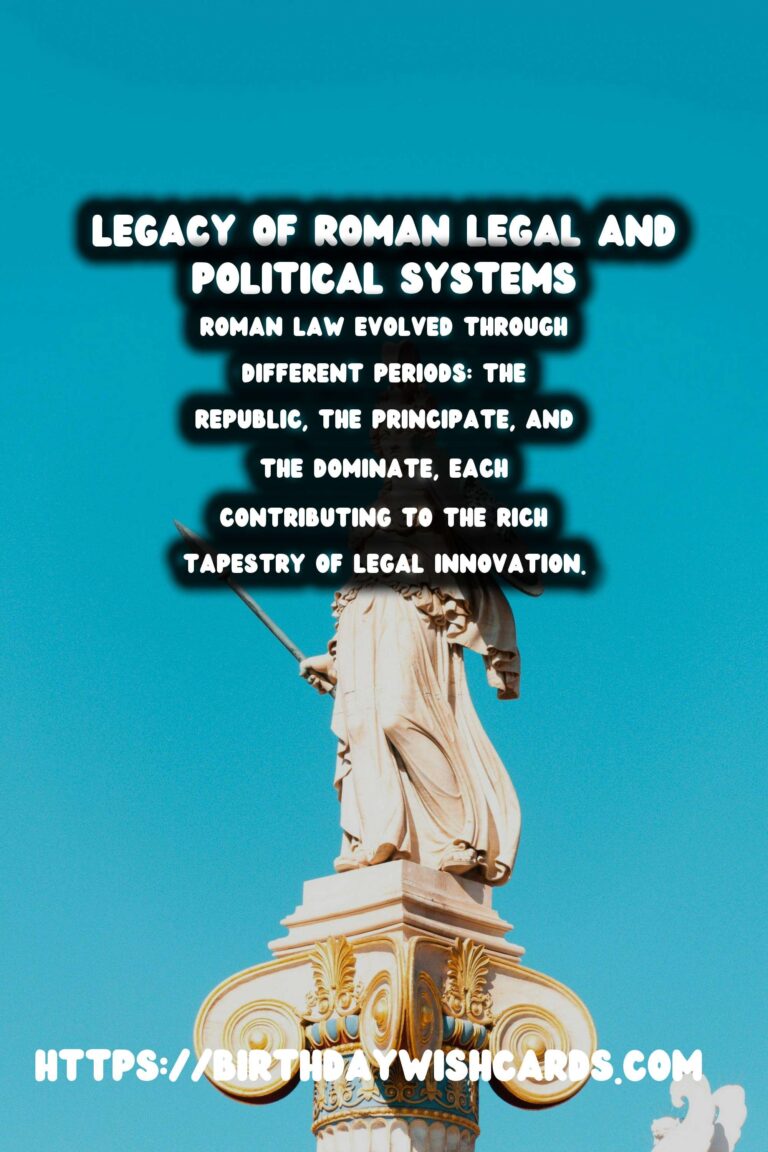

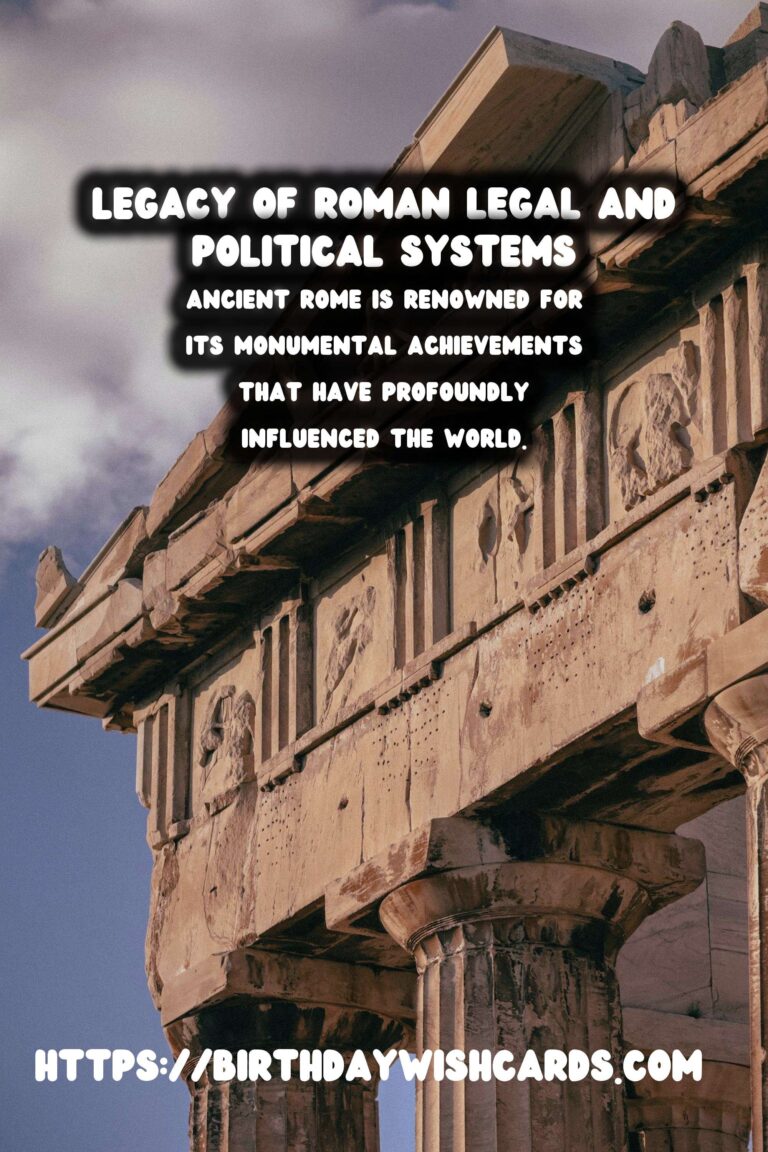
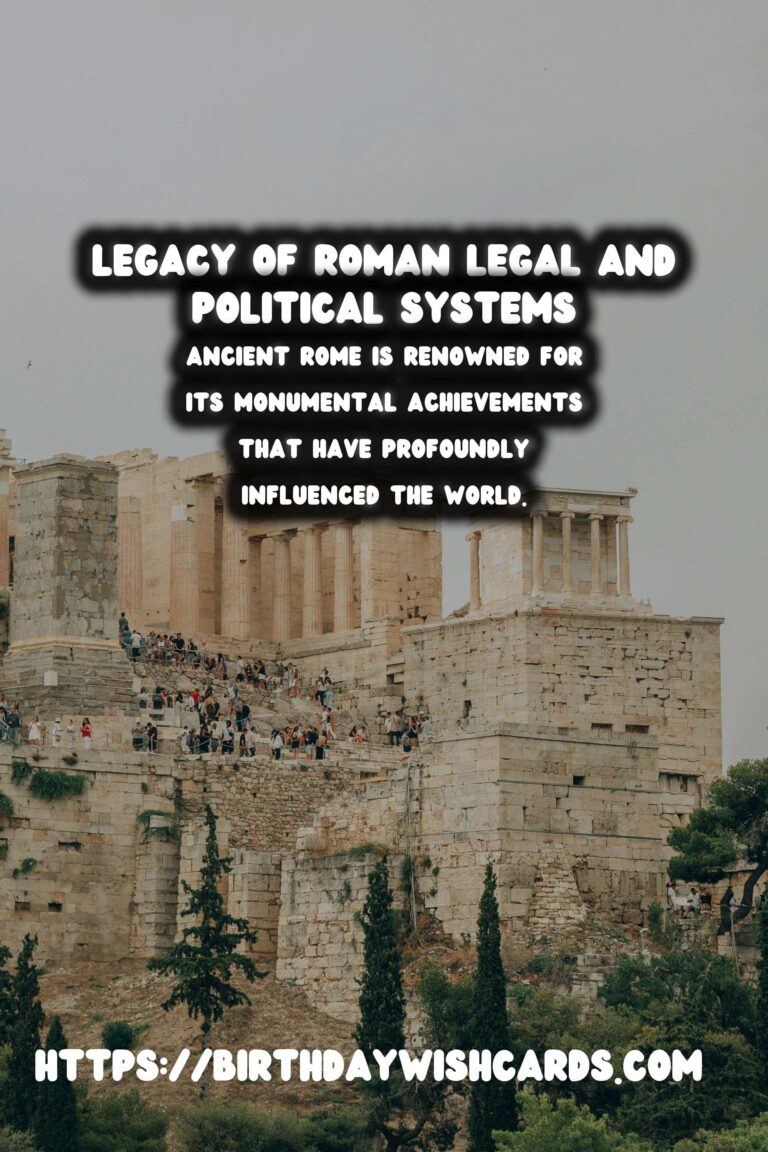
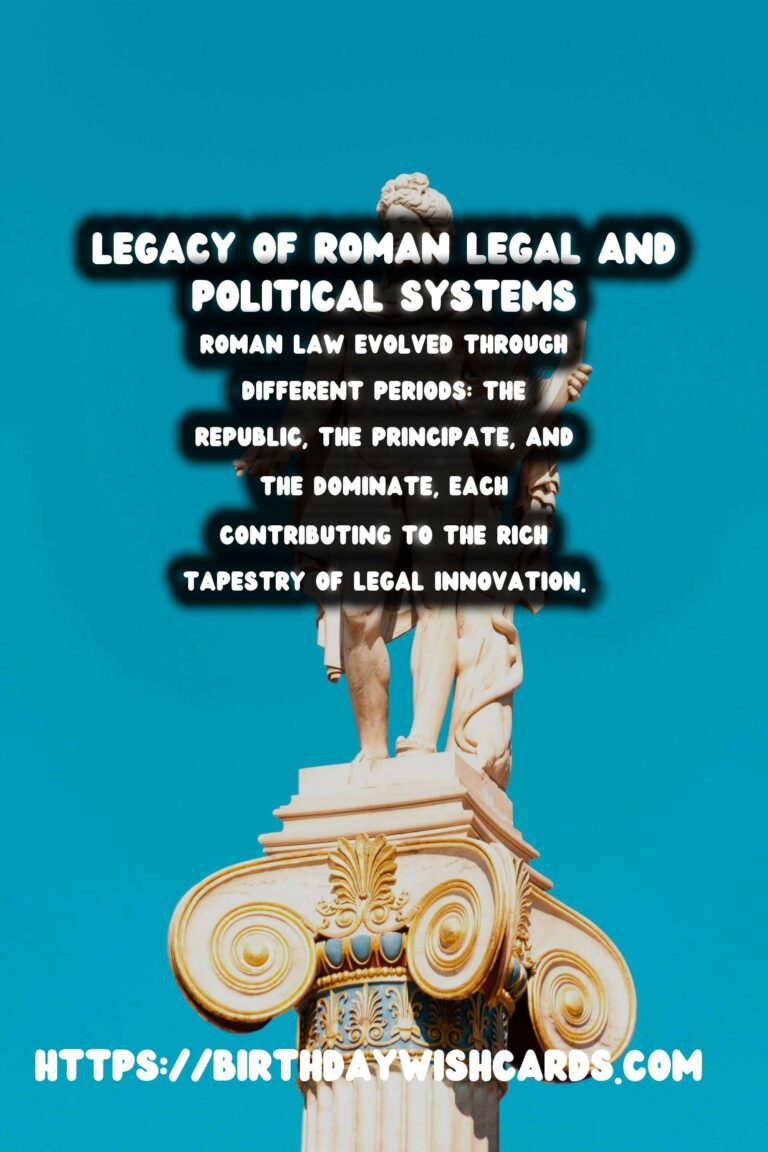
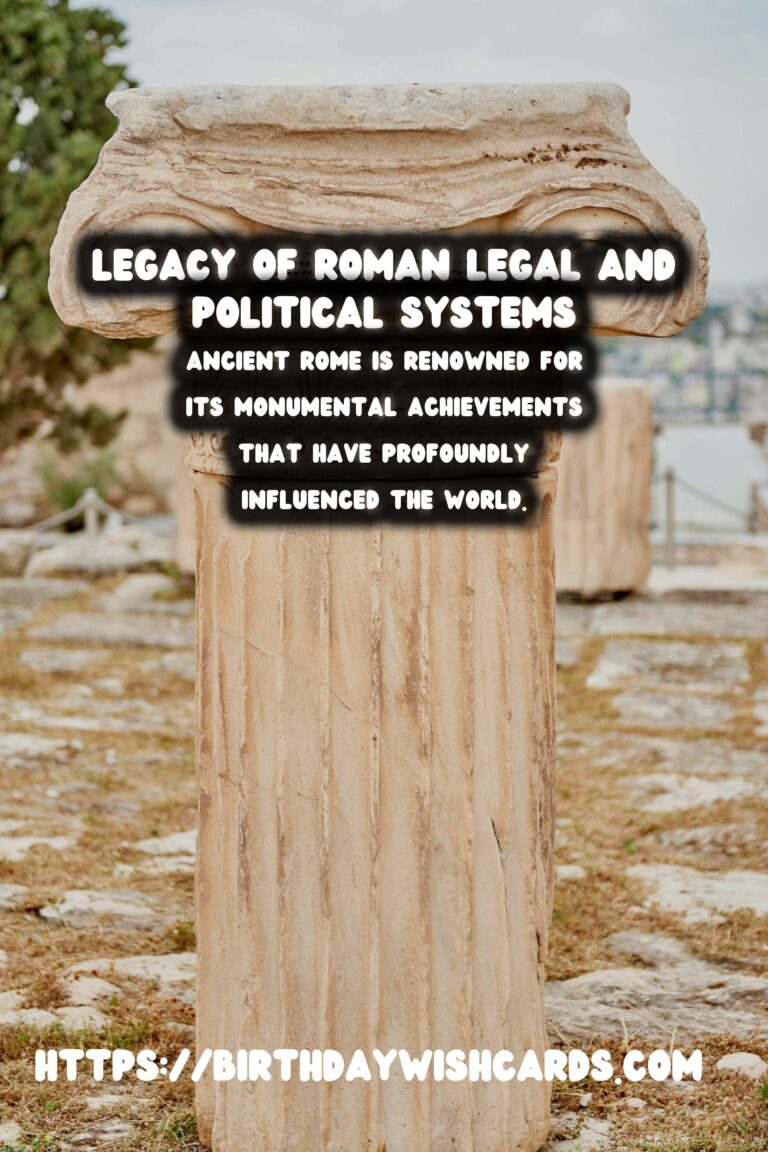
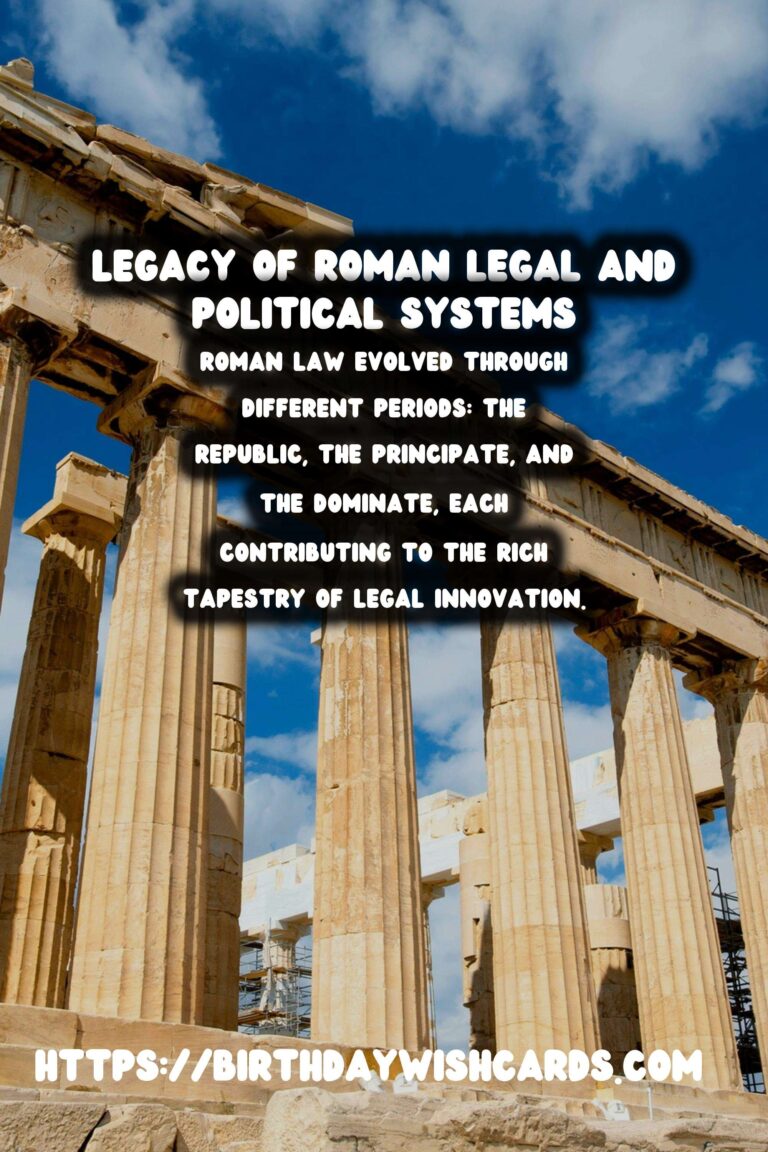
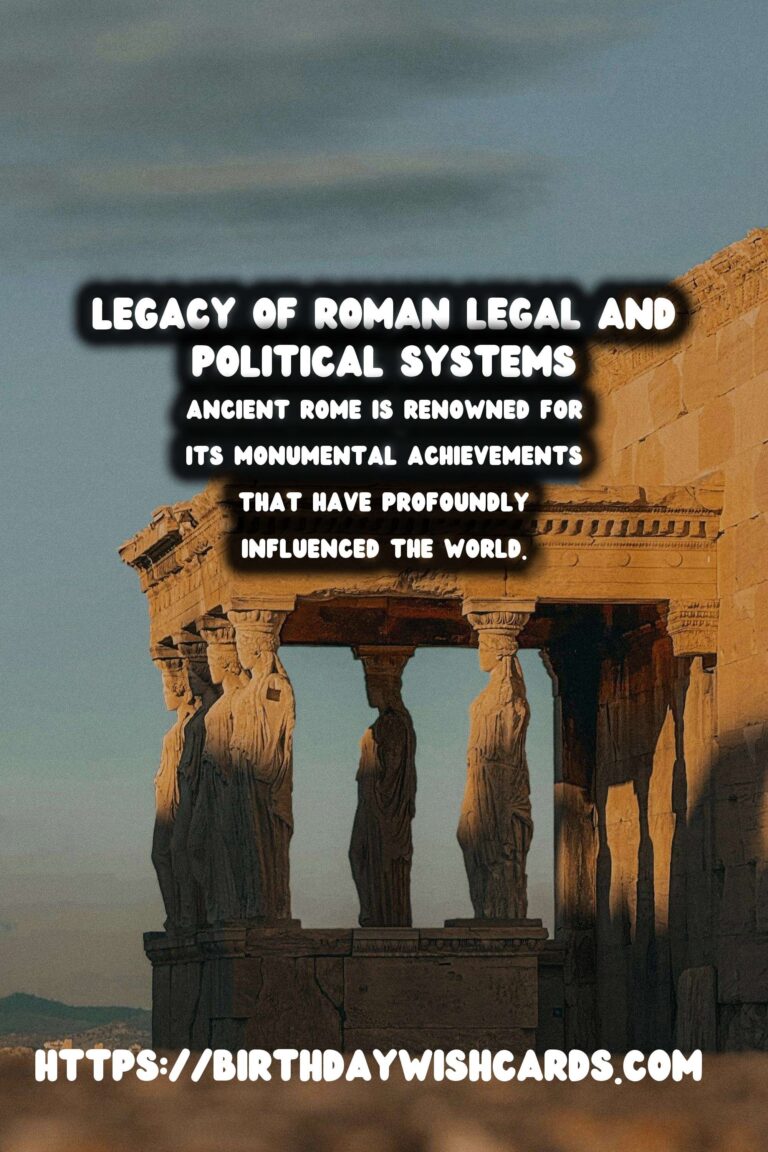
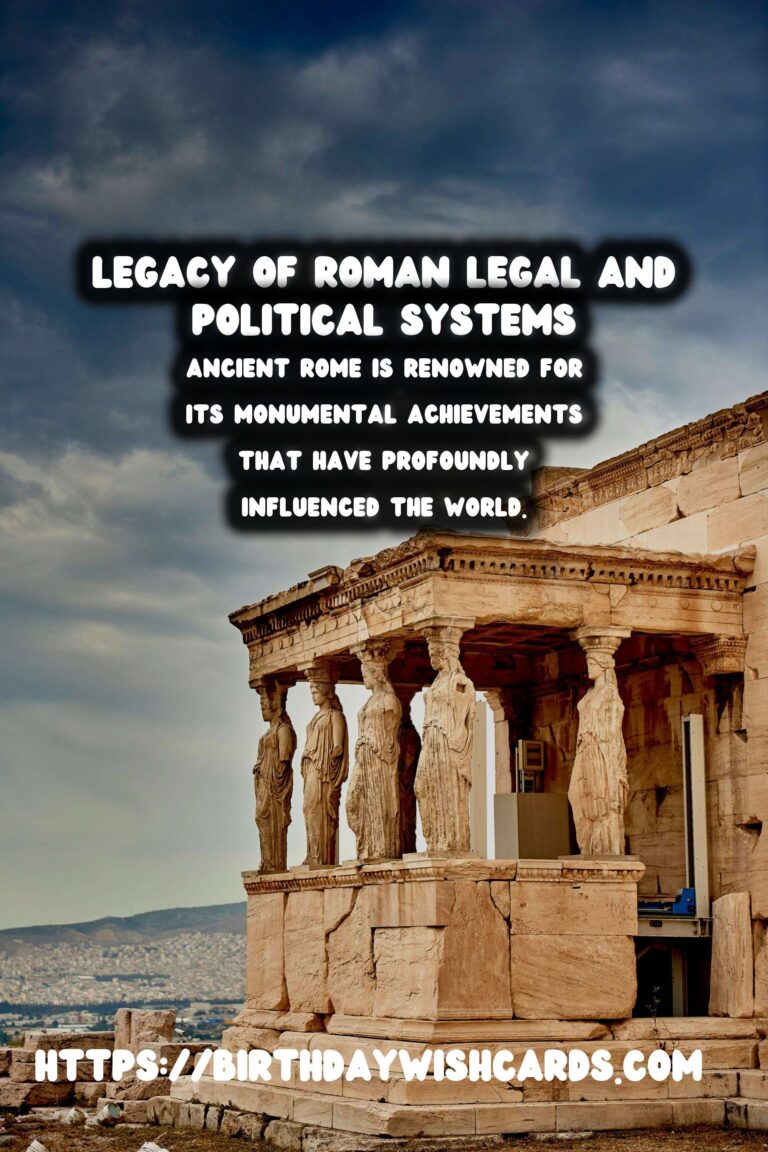
#AncientRome #LegalSystems




